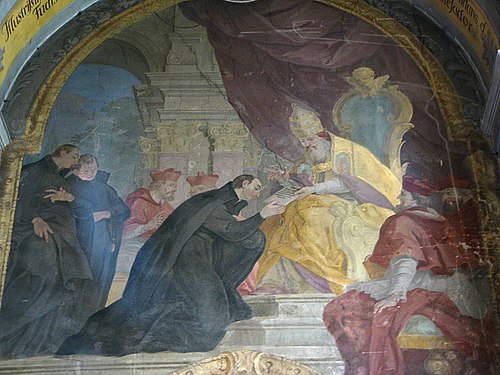
The Society of Jesus, more commonly known as the "Jesuits," is one of the most influential and controversial religious orders in the history of the Catholic Church. Its official establishment as a recognized religious order by the Pope was the result of the promulgation of the papal bull "Regimini militantis ecclesiae," which was signed by Pope Paul III on September 27, 1540. This papal bull had a significant impact on the history of the Church and the development of Catholicism during the time of the Protestant Reformation.
Historical Background
The 16th century was marked by major changes within the Catholic Church, including the rise of Protestantism and the Reformation initiated by Martin Luther in 1517. The Catholic Church responded to these challenges by seeking to reform and revitalize its own ministry. It was in this context that the Society of Jesus was founded.
The Foundation of the Society of Jesus
The Society of Jesus was founded by Ignatius of Loyola, a former Spanish soldier, in 1534. Ignatius of Loyola and his early followers, including Francis Xavier, Peter Faber, and Diego Laynez, sought to promote spiritual reform within the Catholic Church by emphasizing intellectual training, moral discipline, and religious devotion. Their primary goal was to combat the spread of Protestantism in Europe.
The Bull "Regimini militantis ecclesiae"
On September 27, 1540, Pope Paul III issued the papal bull "Regimini militantis ecclesiae," officially recognizing the Society of Jesus as a religious order within the Catholic Church. This papal recognition granted the Jesuits considerable legitimacy and authority to pursue their apostolic and educational missions. The bull emphasized the need for the deep intellectual formation of its members and sent them around the world to spread the Catholic faith.
Activities of the Jesuits
The Jesuits quickly became involved in missionary and educational activities worldwide. They played a key role in the evangelization of newly discovered lands in the Americas, Asia, and Africa. They also founded numerous schools, colleges, and universities, some of which became among the most prestigious educational institutions in the world.
Controversies and Influence
While the Jesuits gained a reputation for intelligence, piety, and devotion, they also faced controversies and conflicts with other religious orders and civil authorities due to their methods and influence. Their involvement in the Catholic Counter-Reformation and missionary zeal often placed them at the center of theological and political debates.
The "Regimini militantis ecclesiae" bull marked the beginning of an era of intense activity for the Society of Jesus and contributed to shaping the trajectory of Catholicism in the early modern period. Jesuits continue to play a significant role in the Catholic Church and in the field of education today. The foundation of the Society of Jesus remains a significant event in the religious and cultural history of Europe and the world.
Sect / Religion - 28 septembre 2023 - 




















